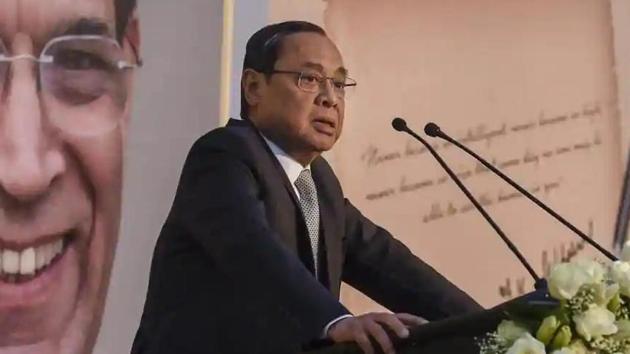Did not face govt interference in judicial appointments: Ex-CJI Gogoi
The former CJI also said that the Collegium system is an excellent method for appointing judges to the high courts and the Supreme Court as the system helps keep in check executive interference when it comes to judicial appointments.
Former Chief Justice of India (CJI) and present Rajya Sabha MP Ranjan Gogoi said on Wednesday that the Supreme Court Collegium did not face any government interference during his tenure as the CJI when appointing judges to high courts and the Supreme Court.

“Fourteen names were recommended for appointment (as judges) to the Supreme Court during my tenure. They were accepted and appointments made on time. There was never any difficulty. All recommendations with chief justices of high courts also were processed in time. (There was) no executive interference,” he said at a webinar organised by Confederation of Alumni for National Law Universities on the topic ‘Ensuring an independent judiciary under our Constitution’.
The former CJI also said that the Collegium system is an excellent method for appointing judges to the high courts and the Supreme Court as the system helps keep in check executive interference when it comes to judicial appointments.
“My experience with the collegium is that it is a sure way of keeping the executive out of the appointment process. The executive has got an equal role though the judicial voice is the ultimate voice,” he said.
Justice Gogoi also said that protection and immunity afforded to judges should be strengthened so that they can perform their duties fearlessly. The vulnerability attached to the office of a judge dissuades young lawyers from taking up offers to become judges, he said.
“The scheme for protection of judges needs to be strengthened. Young lawyers are not keen to become judges. The office of the judge of a high court has been made so vulnerable that a lawyer is happy to continue as a lawyer. Don’t forget the sacrifice a lawyer makes to become a judge,” Gogoi said.
He was also critical of a “group” of activists and media who, he alleged, have set benchmarks for judges to be considered independent. Judges are attacked if they do not conform to the standards set by them and such tendencies will sound the death knell for an independent judiciary, Gogoi said.
“Activists, web portals, some mainstream media (organizations), this is one group that has laid down ‘identification marks’ for who is an ‘independent judge’. A judge, (according to them), should be anti-authoritarian, eloquent on issues like rich-poor divide, oppression of marginalised and suppression of fundamental rights. If judges don’t conform to these expectations, they are attacked. This is destructive of the independence of the judiciary,” he said.
Eyebrows were raised when Justice Gogoi accepted the Rajya Sabha nomination, barely four months into his retirement from the Supreme Court.
On the issue of post-retirement jobs, Gogoi, in response to a question, pointed out that there are judges who take to arbitrations after retirement while another group of judges talk about judicial independence and freedom of speech after demitting office.
“You talk about post-retirement engagements as compromising judicial independence. What about those other two categories,” he asked.






